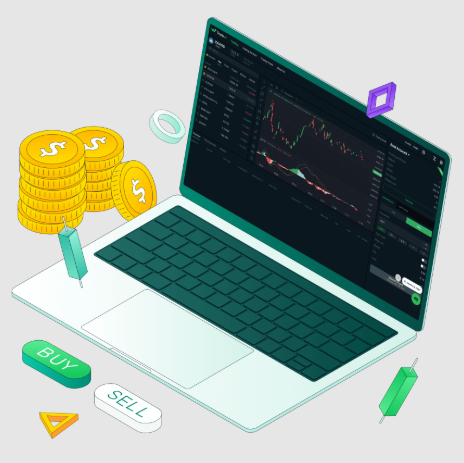Futures contract A futures contract is a binding contract where the exchange markets a future delivery of an asset at a pre-set price, and at a pre-set future date. Think of it as making a reservation for something you will use later — but instead of a table at a restaurant, you are reserving the ability to buy and sell currencies, commodities or other financial assets.
The most distinctive feature of futures contracts that sets them apart is the obligation associated with them. Unlike options, which only give you the right to trade but not the obligation, with futures contracts, both parties to the agreement must close out their contract on the set expiration date. This provides a guarantee to both buyers and sellers and is a great risk management and speculative tool.

Futures are traded in various markets such as commodities (e.g., oil, gold, wheat), stock indices (S&P 500, NASDAQ), cryptocurrencies (Bitcoin, Ethereum) and the forex market where one trades currency pairs such as EUR/USD, GBP/USD and USD/JPY.
What is the Role of the Futures Market in Forex Trading
Forex futures work differently from spot forex, which most retail traders are accustomed to. Spot forex requires immediate settlement, whereas futures contracts are provided by centralised exchanges such as the Chicago Mercantile Exchange (CME).
These contracts expire on certain dates - ordinarily, they are in quarterly cycles of March, June, September, and December. A standard contract corresponds to a standardised quantity of the base currency. On the CME, for instance, an EUR/USD futures contract is worth 125,000 euros, and a GBP/USD contract is worth 62,500 British pounds.
The margin requirement is the most significant part of futures trading. Unlike spot forex, where you need a 1-5% margin, as is for case with ECN brokers that offer 1:500 or even 1:1000 leverage, the better idea when trading futures is to calculate everything in terms of % of contract, which would be about 3-10% regarding different futures. This leverage gives you the ability to open large positions even with very little capital, but also increases both profits and losses.
Typical Scenarios in Forex and CFD Markets for Futures Contracts
Forex futures play an important threefold role in the world of financial investment--offering solutions to many of the challenges that are faced by today's marketplace participants.
Arguably, the most common use of forex futures is for hedging. Such contracts are used by firms with foreign operations as a hedge against currency movement in the other direction. For example, a Japanese exporter awaiting payment of $1 million from sales in the U.S. in three months can sell USD/JPY futures to hedge against changes in the two currencies’ exchange value. The strategy shields them from possible losses if the dollar falls versus the yen before they are paid.
These are followed by the speculation on trading, where a trader can take a position (short or long) in order to make money from a currency move in the future. If, for example, a trader believes the euro will recover from its current weakness and strengthen against the dollar, he or she may buy futures on EUR/USD (or, if you want to be precise, buy a call option on the EUR/USD with a 48.00 strike price). It’s kind of like any strategy on investing, although you do have the extra issue of expiration dates and margin calls.
Here Are Important Forex Trading Terms You Need To Know
You need to familiarise yourself with the term before entering into the realm of forex futures trading. These are the basis of how futures contracts are structured and valued.
Size of Contract: The amount of base currency is referred to as a future contract. For EUR/USD futures, this is generally 125,000 euros. Imagine it’s a “how many apples are there in a box” — it’s the standardised unit for trade.
Expiration Date is the date on which the futures contract must be settled. Unlike forex, by and large, which has no expiration, futures have expiration dates on them. It would be tantamount to a “best-before date on milk” – you have to act before the date, or you’re in trouble.
Conclusion:
Futures contracts are complex and offer great value for the right trader or investor. But they are also legally binding contracts to purchase or trade a currency at a predetermined rate and date and have certain benefits in terms of transparency, regulation and risk management.
Whether to trade forex futures or not is going to be dependent on your trading goals, level of experience, and risk threshold. For institutions and corporations with real exposure to currency, futures are the best option to hedge and to have certainty about their costs. For retail (individual) investors, they also provide the ability to trade currency movements with leverage using institutional-grade spreads and pricing.
For more info:-
online trading platform
best forex trading platform